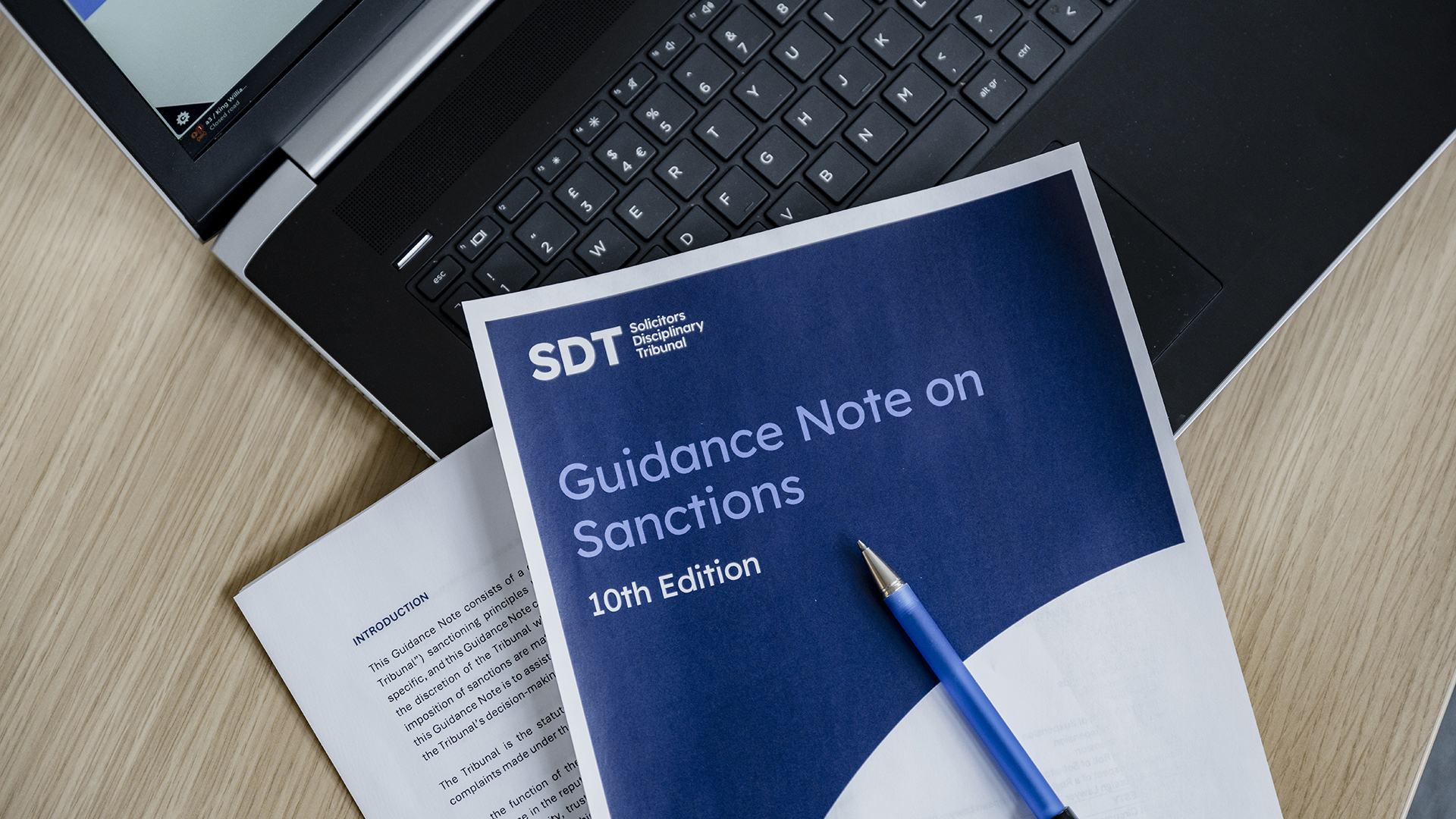
Guidance and Policies
Our resource library provides access to a range of guidance, forms, policies and FAQs relating to cases brought to the SDT.
Guidance
Our guidance information is designed to assist you with SDT processes and procedures.
Forms
Our forms help ensure that the correct information is provided to the SDT.
Policies
Access our policies and practice directions.
Proceedings Pack
For use by Respondents
Frequently asked questions
We have answers to a range of frequently asked questions.
Applications
There is a right of appeal by the Lay Applicant to the High Court under section 49(2), Solicitors Act 1974 (as amended). The parties to the appeal are you as the person challenging the decision (called the Appellant) and the solicitor(s) against whom your application is made.
You must provide a copy of your application to the Tribunal and SRA. The Tribunal and/or the SRA may apply to the High Court to be joined into the appeal as an interested party, but this will happen only very rarely.
The application will be reviewed by a clerk who will issue some directions which will include the hearing date for the application to be considered.
The SRA will require 28 days in which to respond and the hearing will take place on the first available date after that period of time has expired. You must attend the hearing to make your application and you are responsible for calling any witness evidence on which you wish to rely.
Hearings
The Tribunal does not have power to award compensation. The Legal Ombudsman does have power to do so. Please see the Legal Ombudsman’s website for more details.
Yes. Most hearings are open to the public and we encourage remote attendance by Zoom.
However, any party to a case and any person who claims to be affected by it can apply to the Tribunal for the hearing, or part of it, to be held in private on the grounds of exceptional hardship or exceptional prejudice to a party, a witness or any person affected by the application. The Tribunal will only grant the application in those exceptional circumstances if it is satisfied that the grounds have been met. The Tribunal’s order on such an application will always reflect what it considers to be just and proper.
For further details please refer to the Solicitors Disciplinary Rules.
The Tribunal does not produce written transcripts of its hearings; however, it does provide audio copies of hearings available on request. A copy of a hearing is not available when the hearing took place in private or when the Tribunal has ordered that the recording should not be released. Parties to a case are always entitled to an audio copy of the hearing.
Requests for recordings should be sent to enquiries@solicitorsdt.com
Recordings are provided free of charge.
Judgments
Yes. If the name of the solicitor you are interested in does not appear in our published judgments, then please contact us and a member of staff will assist you.
Yes, in most cases. Judgments are published on our website in accordance with our Judgment Publication Policy. This Policy sets out how long different types of Judgment will remain on the website.
Judgments which have been removed from the website in accordance with the Policy can normally be obtained from the Tribunal’s office. Please contact us and a member of staff will be happy to assist you.
In certain cases, particularly if the Tribunal has ordered that the hearing should take place in private, the Judgment may not be available to anyone other than the parties to the case without specific permission of the Tribunal.
The Tribunal does not have power to award compensation. The Legal Ombudsman does have power to do so. Please see the Legal Ombudsman’s website for more details.
The SDT aims to produce judgments within seven weeks of the last day of the hearing in 85% of cases. Judgments may take longer to produce in lengthy and/or complex cases.
Appeals
Yes, you must tell the Chair of the Tribunal from whose decision the appeal is brought that you are appealing against the decision – see Civil Procedure Rules Rule 52 and Practice Direction 52D, paragraph 3.4
You must send your Appellant’s Notice marked for the attention of the Chair of the Tribunal which heard your case to the SDT by email to enquiries@solicitorsdt.com
Appeals from substantive decisions of the Tribunal lie to the Administrative Court. The Tribunal is not a party to appeals from its substantive decisions.
Appeals from substantive decisions of the Tribunal are made to the Administrative Court. As from 1 October 2013, the time limit for lodging an appeal is 21 days from when the Tribunal’s written Judgment is provided to the parties – see Civil Procedure Rules Rule 52 and Practice Direction 52D. The Tribunal’s written Judgment (or in some cases Memorandum), which usually becomes available 2 – 7 weeks after the hearing.
For further information on how to appeal please contact the Administrative Court Office using the contact details below:
Administrative Court Office
The Royal Courts of Justice
Strand
London
England
WC2A 2LL
DX 44450 RCJ / STRAND
Telephone
- Royal Courts of Justice Switchboard: 020 7947 6000
- Issue and General Enquiries: 020 7947 6655